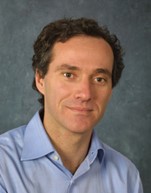Title: Stability and Signal Generator Agnostic Moment Matching
Abstract: Moment matching is a model reduction technique which allows constructing reduced-order models preserving specific moments. These moments are associated with the steady-state output response of the system to be reduced interconnected in an open-loop fashion to a signal generator. Model matching thus relies on strong stability properties and on the availability of a model of the signal generator.
To relax these requirements, in the first part of the talk we introduce a data-driven procedure for computing reduced-order models from input-output data generated by an agnostic signal generator. The moments are directly identified from the output of the system to be reduced, and the resulting reduced-order models achieve asymptotic matching.
To relax the stability requirements, in the second part of the talk we revisit the notion of moment matching by introducing the concept of closed-loop interpolation. This notion relies upon the construction of a novel class of signal generators, which are feedback interconnected with the plant to be reduced, and allows defining moments and models for unstable systems. The existence of a family of models that parameterise all, possibly unstable, systems achieving moment matching in a closed-loop fashion is also presented.
 Biography: Alessandro Astolfi was born in Rome, Italy, in 1967. He graduated in electrical engineering from the University of Rome in 1991. In 1992 he joined ETH-Zurich where he obtained a M.Sc. in Information Theory in 1995 and the Ph.D. degree with Medal of Honor in 1995 with a thesis on discontinuous stabilization of nonholonomic systems. In 1996 he was awarded a Ph.D. from the University of Rome “La Sapienza” for his work on nonlinear robust control.
Biography: Alessandro Astolfi was born in Rome, Italy, in 1967. He graduated in electrical engineering from the University of Rome in 1991. In 1992 he joined ETH-Zurich where he obtained a M.Sc. in Information Theory in 1995 and the Ph.D. degree with Medal of Honor in 1995 with a thesis on discontinuous stabilization of nonholonomic systems. In 1996 he was awarded a Ph.D. from the University of Rome “La Sapienza” for his work on nonlinear robust control.
Since 1996 he has been with the Electrical and Electronic Engineering Department of Imperial College London, London (UK), where he is currently Professor of Nonlinear Control Theory and College Consul for the Faculty of Engineering and Business School. From 2010 to 2022 he served as Head of the Control and Power Group at Imperial College London and from 1998 to 2003 he was an Associate Professor at the Dept. of Electronics and Information of the Politecnico of Milano. Since 2005 he has also been a Professor at Dipartimento di Ingegneria Civile e Ingegneria Informatica, University of Rome Tor Vergata. He has been a visiting lecturer in “Nonlinear Control” in several universities, including ETH-Zurich (1995-1996); Terza University of Rome (1996); Rice University, Houston (1999); Kepler University, Linz (2000); SUPELEC, Paris (2001), Northeastern University, Boston (2013), the University of Cyprus (2018--), and Southeast University, China (2019--).
His research interests are focused on mathematical control theory and control applications, with special emphasis for the problems of discontinuous stabilization, robust and adaptive control, observer design and model reduction. He is the author of over 190 journal papers; 30 book chapters; and over 370 papers in refereed conference proceedings. He is the author (with D. Karagiannis and R. Ortega) of the monograph “Nonlinear and Adaptive Control with Applications” (Springer-Verlag).
He is the recipient of the IEEE CSS A. Ruberti Young Researcher Prize (2007), the IEEE RAS Googol Best New Application Paper Award (2009), the IEEE CSS George S. Axelby Outstanding Paper Award (2012), the Automatica Best Paper Award (2017), and the IEEE Transactions on Control Systems Technology Outstanding Paper Award (2023). He is a “Distinguished Member” of the IEEE CSS, IEEE Fellow, IFAC Fellow, IET Fellow, and Member of the Academia Europaea.
He served as Associate Editor for Automatica, Systems and Control Letters, the IEEE Trans. on Automatic Control, the International Journal of Control, the European Journal of Control and the Journal of the Franklin Institute; as Area Editor for the Int. J. of Adaptive Control and Signal Processing; as Senior Editor for the IEEE Trans. on Automatic Control; and as Editor-in-Chief for the European Journal of Control. He is currently Editor-in-Chief of the IEEE Trans. on Automatic Control (2018--). He served as Chair of the IEEE CSS Conference Editorial Board (2010-2017) and in the IPC of several international conferences. He has served as Chair of the IEEE CSS Antonio Ruberti Young Researcher Prize (2015-2021); he is Vice Chair of the IFAC Technical Board (2020-2026) and he has been a Member of the IEEE Fellow Committee (2016), (2019-2022). He is currently a member of the IEEE PSPB Strategic Planning Committee.